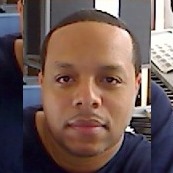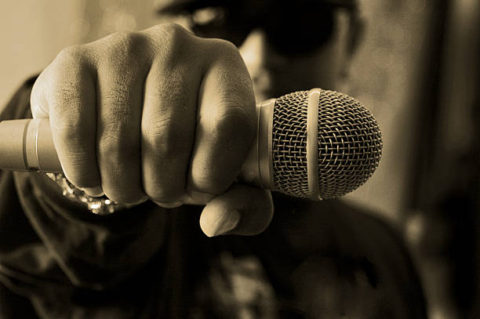5 Things I Learned Co-Managing The Roots


Aj Shine
Music Producer, Entrepreneur
I always wanted to be a producer / artist. That’s one of the many reasons I didn’t last a manager. One of the other reasons (probably more important) was because I didn’t know what a manager was supposed to do. More on that later. In this article, I going to focus on what I learned about managing a group from an artist perspective.
I was hosting a talent show in North Philadelphia at a hole-in-in-the-wall dive called the Princess Lounge when I first saw the Roots perform. This was over 25 years ago. I think I got the hosting gig from my radio show (at that time I did a rap show every Sunday on WKDU- Drexel University’s radio station). I was with Cosmic Kev (who was the DJ on our show at the time).
 Early Roots Pic.
Early Roots Pic.
(L to R) Kamal, Leonard Hubbard, Black Thought, Scratch, QuestLove
The club was a bar — not a club. Mirrors on the wall-type of club. The stage was smallest enough to have a couple of strippers parked up there on the regular, with a little black gate separating the people that were in the tables or at the bar. So let me pause right there – The Roots should not have been in that bar. That’s the first thing I learned from the Roots. These kids were hungry. The second thing I learned (as I look back on it) is that they were prepared. They had a show lined up w/ songs they had been cultivating and working on for a while. That’s really important. Not the being hungry part — because I don’t doubt that any artist (especially one reading this) isn’t hungry. The difference between them and the rest of artists in the city at that time is they had a show that consistently of basically a full album’s worth of material.
So let me pause right there – The Roots should not have been in that bar. That’s the first thing I learned from the Roots. They were hungry.
The first thing I noticed was the white kid on the upright bass. Nothing racial — but a) it was a big 1930’s style upright bass and b) we were in the heart of North Philadelphia (which is decidedly urban or mad black — whichever term you prefer). It was 10:30 pm or so in the evening and young white kids didn’t venture in those parts during the day … let alone at night. Early 1990’s – right after the crack game had been real – not that ghetto folklore u heard in a Jay Z song.

The next thing was QuestLove playing breakbeats that we only had on records up to that point. That held me and Kev in a trance for about 15 minutes until we realized that the guy rapping …. never stopped rapping. Black Thought had his own style the very first time I saw him. And it was based on the idea is his head that he wanted to be known as the best rapper out there. So he just never stopped rapping (lol). The LOL is on his legendary 10 minute Funk Flex freestyle over 2 decades later. Pause #2. Having your own style is a critical element in separating yourself from the masses.

So why the long story? Because I can tell U at that time — there was nothing that would make me sacrifice my career to become a manager. I came from being a DJ/ rapper and I always wanted to make records. But I saw the Roots and knew I was watching something special. Innovation on a sonic level. At the time it was the heart of the sampling era. No-one had played instrumentals for the last 20 years. And they were playing Tribe Called Quest records in real time.
The goal is to search for innovation in your art (singing, rapping, playing) and get it to a place where you can perform it in front of anyone. That doesn’t happen overnight. It takes practice and hard work. That’s what talent is. Talent is when people see you and say “Wow- Ure really talented” and you BS them and tell’ em “yeah I just started rapping yesterday – it must a gift”.
Questlove’s Dad had his own group in the 1950’s and they put him on a drum set when he was 2 years old. There is a reason he is widely regarded as the world’s best drummer. He may have more hours in on the drums (in front of a crowd) than anyone under 50 years of age.
I watched Black Thought freestyle for 3 hours everyday when we were living in London working on the From the Ground Up project. And that’s when I was watching …. I have no idea how much he practiced before I got to know him. I saw him mess up in a show (once) early in his career and he told me the next day – “he went home and rapped all day”. The next show his performance was on fire. What I learned from being that close to a group that was successful is how much hard work, dedication, and perseverance went into being a world-class performer.
In todays day and age, it looks like theatre has a much bigger role in being an artist than it did then. Everything has a visual element connected to the sound. U don’t have to look further than Tekashi 69 to realize that’s true. He is the perfect example of taking it too far.
The underground is much bigger — in fact the underground is global … its the whole Internet. There is tremendous pressure to stand out and I see alot of crash-and-burn style antics to get noticed. I can’t knock it – whatever works.
I would suggest, though, that you get your style, act and music tight for a small few and let the game of getting popular take care of itself. That is where a good manager will fit in. I’ll talk more about that in Part II of WHAT I LEARNED FROM MANAGING THE ROOTS.
Ready to Make some music ? or subscribe below for discounts off your 1st purchase
